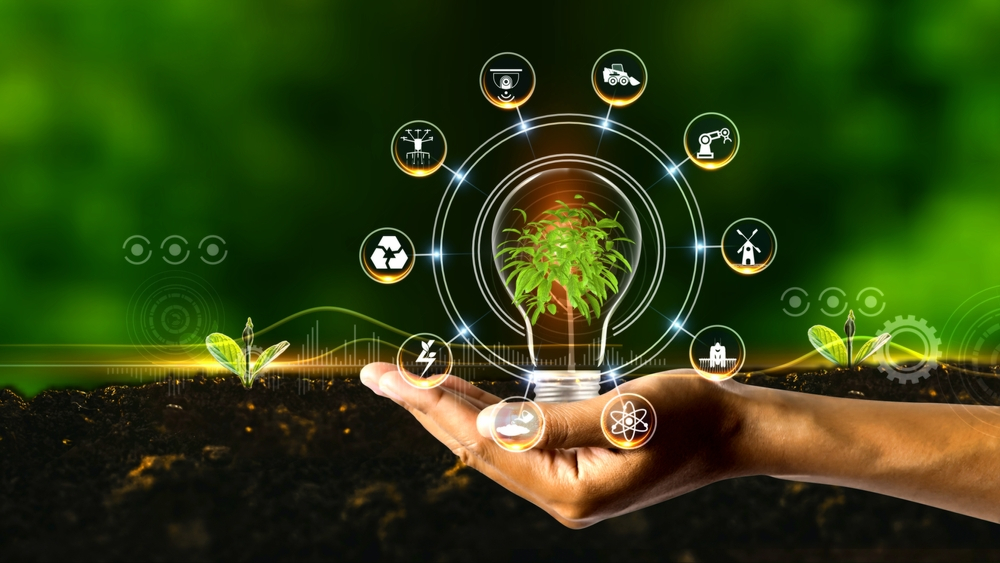
Internet of Things (IoT) in Agriculture: Transforming Farming Practices with Smart Devices
Author:
Global Industry Hub
Published Date:
07 Apr 2024
In the age of digital innovation, the Internet of Things (IoT) is revolutionizing traditional farming practices, ushering in a new era of precision agriculture. By leveraging smart devices and data-driven insights, farmers can optimize resource management, improve crop yields, and enhance overall efficiency. Let's explore how IoT is transforming agriculture and shaping the future of farming.
1. Precision Farming: Enhancing Agricultural Efficiency
Maximizing Yield with Data-Driven Insights
Precision farming, enabled by IoT technology, allows farmers to monitor and manage crop growth with unparalleled precision. Through the deployment of sensors, drones, and smart irrigation systems, farmers can gather real-time data on soil moisture levels, nutrient content, and crop health. By analyzing this data, farmers can make informed decisions regarding irrigation scheduling, fertilizer application, and pest management, ultimately maximizing yield while minimizing resource wastage.
2. Smart Irrigation Systems: Optimizing Water Usage
Efficient Water Management for Sustainable Agriculture
Smart irrigation systems powered by IoT technology are revolutionizing water management in agriculture. By integrating sensors and weather data, these systems can adjust irrigation schedules based on real-time conditions, ensuring optimal soil moisture levels while conserving water. Through remote monitoring and automated control, farmers can reduce water usage, mitigate water-related risks, and promote sustainable farming practices, all while optimizing crop yield and quality.
3. Crop Monitoring and Management: Preventing Losses with Data Insights
Early Detection of Crop Diseases and Pests
IoT-enabled crop monitoring solutions provide farmers with valuable insights into crop health and productivity. By deploying sensors to monitor environmental conditions and detect anomalies, farmers can identify early signs of crop diseases, pest infestations, and nutrient deficiencies. Armed with this information, farmers can take proactive measures to prevent losses, such as implementing targeted pesticide applications, adjusting irrigation regimes, or deploying biological control methods, thereby safeguarding crop yields and ensuring profitability.
4. Livestock Management: Improving Animal Health and Productivity
Enhancing Efficiency and Welfare through IoT Solutions
IoT technology is also revolutionizing livestock management, enabling farmers to monitor animal health and behavior in real-time. Wearable devices equipped with sensors can track vital signs, activity levels, and feeding behavior, allowing farmers to detect signs of illness or distress early on. Additionally, IoT-enabled smart feeding systems can optimize feed allocation based on individual animal requirements, reducing waste and improving feed efficiency. By leveraging IoT solutions for livestock management, farmers can enhance animal welfare, optimize production efficiency, and ultimately increase profitability.
5. Supply Chain Optimization: Ensuring Quality and Traceability
Streamlining Distribution and Enhancing Transparency
IoT technology is reshaping the agricultural supply chain, enabling greater transparency and efficiency from farm to fork. Through the use of IoT-enabled sensors and tracking devices, farmers can monitor the condition of crops and livestock throughout the production process, ensuring quality and freshness. Additionally, blockchain technology, often integrated with IoT solutions, enables secure and transparent record-keeping, allowing consumers to trace the origin of agricultural products and verify their authenticity. By optimizing supply chain logistics and enhancing traceability, IoT is empowering farmers to meet consumer demand for safe, sustainable, and ethically sourced food products.
Conclusion: Embracing the Future of Smart Agriculture
As the world's population continues to grow, the demand for food production will only intensify, placing greater pressure on farmers to optimize productivity while minimizing environmental impact. In this context, IoT technology presents a transformative opportunity for the agricultural industry, offering unprecedented insights and efficiencies across the entire value chain. By embracing IoT solutions for precision farming, smart irrigation, crop monitoring, livestock management, and supply chain optimization, farmers can navigate the challenges of modern agriculture with confidence, ensuring a sustainable and prosperous future for generations to come.


